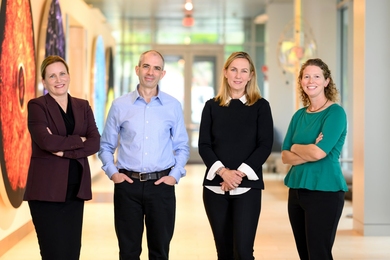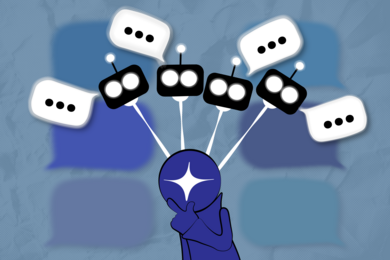In light of the recent events surrounding Covid-19, learning for grades K-12 looks very different than it did a month ago. Parents and educators may be feeling overwhelmed about turning their homes into classrooms.
With that in mind, a team led by Media Lab Associate Professor Cynthia Breazeal has launched aieducation.mit.edu to share a variety of online activities for K-12 students to learn about artificial intelligence, with a focus on how to design and use it responsibly. Learning resources provided on this website can help to address the needs of the millions of children, parents, and educators worldwide who are staying at home due to school closures caused by Covid-19, and are looking for free educational activities that support project-based STEM learning in an exciting and innovative area.
The website is a collaboration between the Media Lab, MIT Stephen A. Schwarzman College of Computing, and MIT Open Learning, serving as a hub to highlight diverse work by faculty, staff, and students across the MIT community at the intersection of AI, learning, and education.
“MIT is the birthplace of Constructionism under Seymour Papert. MIT has revolutionized how children learn computational thinking with hugely successful platforms such as Scratch and App Inventor. Now, we are bringing this rich tradition and deep expertise to how children learn about AI through project-based learning that dovetails technical concepts with ethical design and responsible use,” says Breazeal.
The website will serve as a hub for MIT’s latest work in innovating learning and education in the era of AI. In addition to highlighting research, it also features up-to-date project-based activities, learning units, child-friendly software tools, digital interactives, and other supporting materials, highlighting a variety of MIT-developed educational research and collaborative outreach efforts across and beyond MIT. The site is intended for use by students, parents, teachers, and lifelong learners alike, with resources for children and adults at all learning levels, and with varying levels of comfort with technology, for a range of artificial intelligence topics. The team has also gathered a variety of external resources to explore, such as Teachable Machines by Google, a browser-based platform that lets users train classifiers for their own image-recognition algorithms in a user-friendly way.
In the spirit of “mens et manus” — the MIT motto, meaning “mind and hand” — the vision of technology for learning at MIT is about empowering and inspiring learners of all ages in the pursuit of creative endeavors. The activities highlighted on the new website are designed in the tradition of constructionism: learning through project-based experiences in which learners build and share their work. The approach is also inspired by the idea of computational action, where children can design AI-enabled technologies to help others in their community.
“MIT has been a world leader in AI since the 1960s,” says MIT professor of computer science and engineering Hal Abelson, who has long been involved in MIT’s AI research and educational technology. “MIT’s approach to making machines intelligent has always been strongly linked with our work in K-12 education. That work is aimed at empowering young people through computational ideas that help them understand the world and computational actions that empower them to improve life for themselves and their communities.”
Research in computer science education and AI education highlights the importance of having a mix of plugged and unplugged learning approaches. Unplugged activities include kinesthetic or discussion-based activities developed to introduce children to concepts in AI and its societal impact without using a computer. Unplugged approaches to learning AI are found to be especially helpful for young children. Moreover, these approaches can also be accessible to learning environments (classrooms and homes) that have limited access to technology.
As computers continue to automate more and more routine tasks, inequity of education remains a key barrier to future opportunities, where success depends increasingly on intellect, creativity, social skills, and having specific skills and knowledge. This accelerating change raises the critical question of how to best prepare students, from children to lifelong learners, to be successful and to flourish in the era of AI.
It is important to help prepare a diverse and inclusive citizenry to be responsible designers and conscientious users of AI. In that spirit, the activities on aieducation.mit.edu range from hands-on programming to paper prototyping, to Socratic seminars, and even creative writing about speculative fiction. The learning units and project-based activities are designed to be accessible to a wide audience with different backgrounds and comfort levels with technology. A number of these activities leverage learning about AI as a way to connect to the arts, humanities, and social sciences, too, offering a holistic view of how AI intersects with different interests and endeavors.
The rising ubiquity of AI affects us all, but today a disproportionately small slice of the population has the skills or power to decide how AI is designed or implemented; worrying consequences have been seen in algorithmic bias and perpetuation of unjust systems. Democratizing AI through education, starting in K-12, will help to make it more accessible and diverse at all levels, ultimately helping to create a more inclusive, fair, and equitable future.









